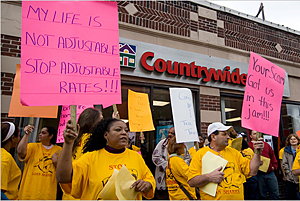By Christina Kostopoulou
It was back in 2008 when the then CEO of Bank of America Ken Lewis had the idea of buying Countrywide. It was a little while before the housing market had just started to weaken but there was still a feeling that it would come back. It seemed like a great opportunity for the U.S. financial giant to make a big move in the mortgage market, so it went ahead and bought Countrywide for $4 billion. Unfortunately for BoA, Countrywide proved to be one of the nation’s biggest subprime mortgage lenders and its toxic bonds would make the bank lose billions. By purchasing Countrywide, BoA’s mortgage loans ballooned from $4 billion to $14! The size of their portfolio drastically expanded at what it seemed to be a smart investment at that time.
Ken Lewis also bought Merrill Lynch for $50 billions, when he could have taken it for a dollar, if only he had waited a day. For obvious reason Mr. Ken Lewis is now out of the picture.
Brian Moynihan took over. He is the one who has to sign a nearly $ 9 billion settlement to 22 mortgage holders, among which is the NY Fed, Pimco & BlackRock, who took mortgage backed securities as collateral during its Wall Street bailout operations. The reasoning behind this new settlement is that it “would minimize economic uncertainty,” and therefore is better to just pay and get done with it once and for all. $ 9 billion is a big ticket and yet little to cover the exposure as it stands for only %2 of the total value of these mortgages. What’s impressive is that even after the announcement of the $ 9 billion hit, BoA stock went up more than %4, showing a positive response from investors.
The %2 of the original principal balance is a big number but not nearly as huge as it would be if the settlement was for %10 or %11. Moynihan’s move brings the Countrywide problem under control and yes, it does create some economic certainty after all.
Some worry that there may be more lawsuits coming and BoA will get on the vicious cycle of paying billions here and there. But that doesn’t seem very likely to happen. Anybody who may go after more money will have to fight for it with those who are now getting a piece. What might happen however is that other big players like Wells Fargo and JP Morgan Chase may follow suit.









